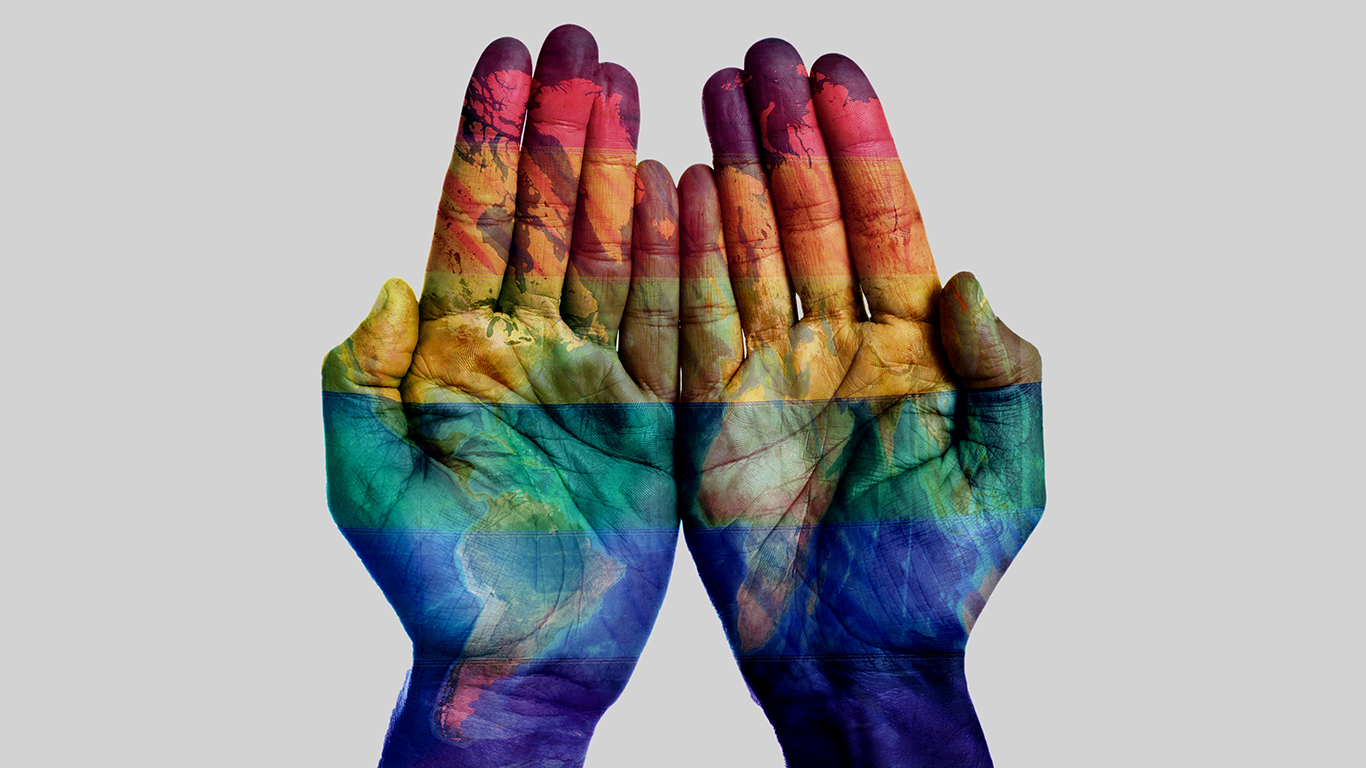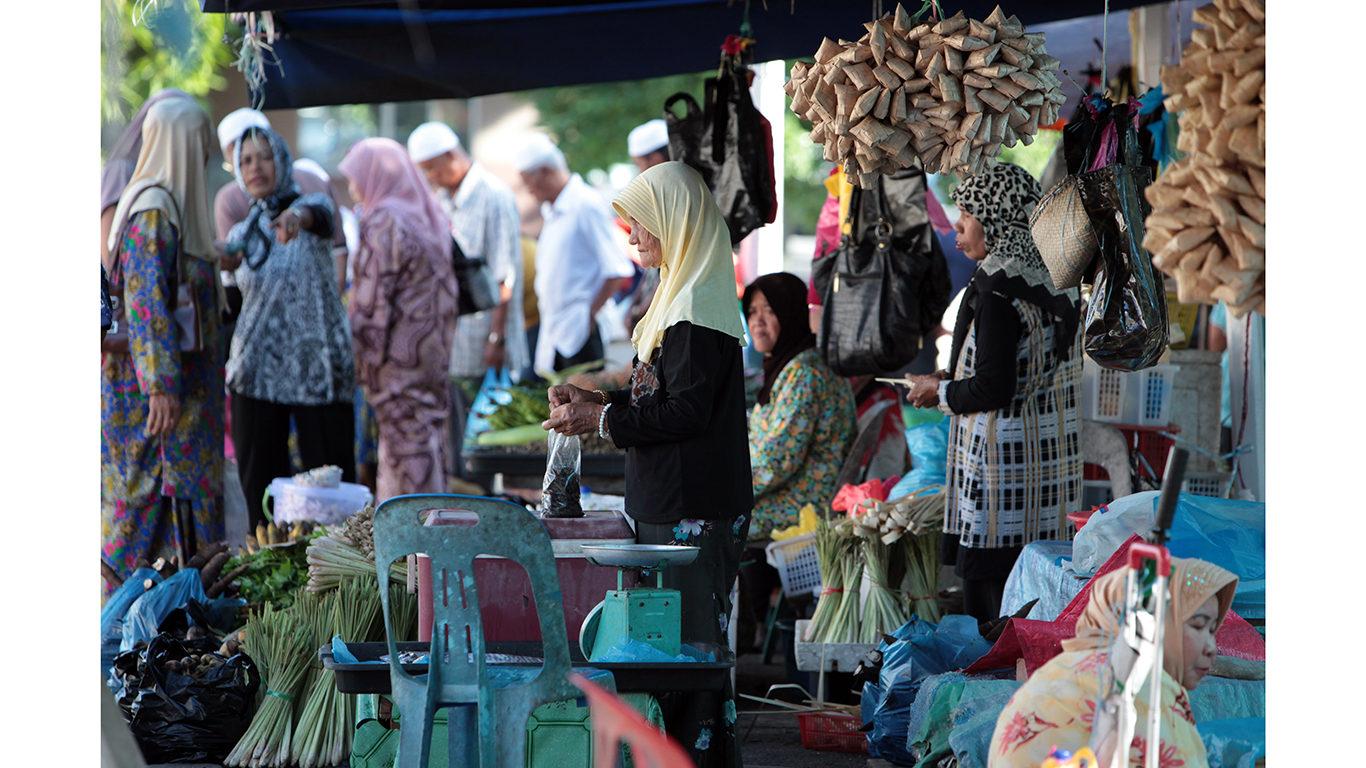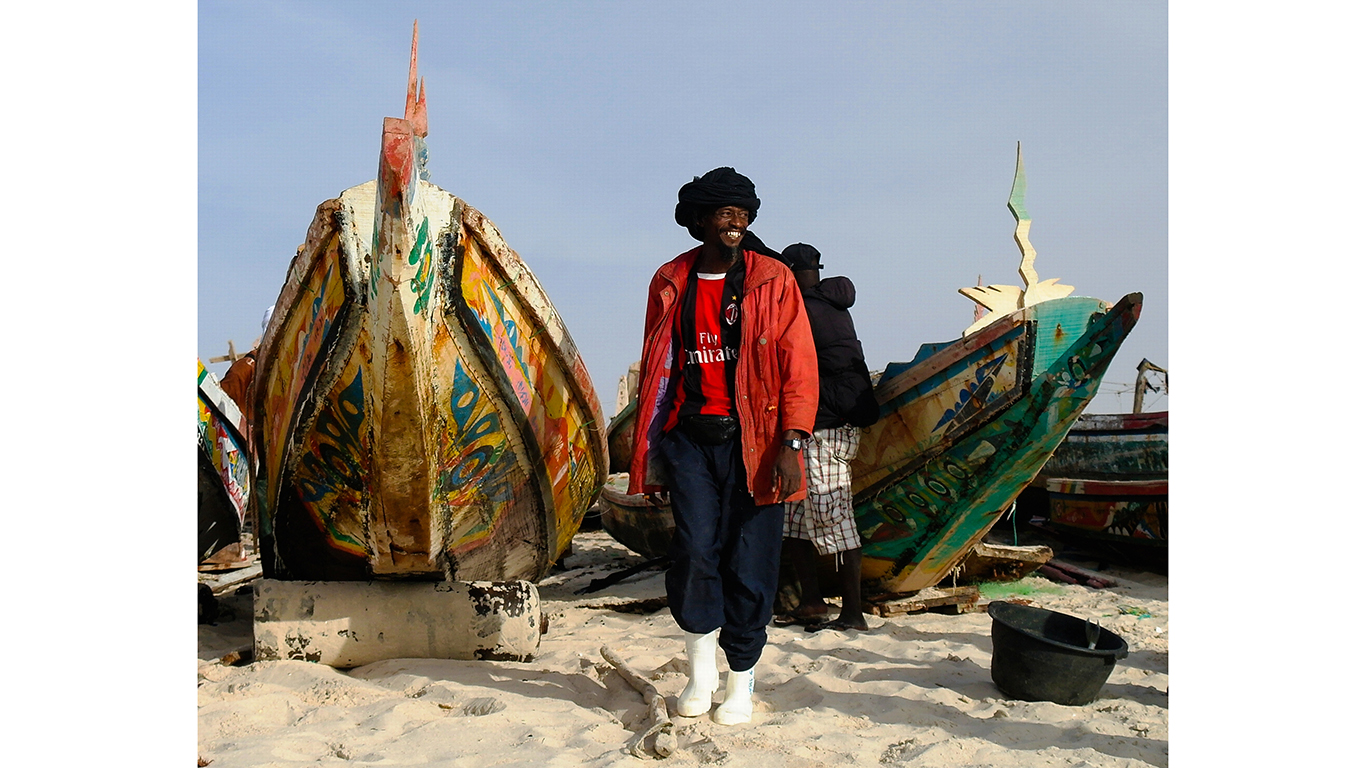Special Report
Countries Where Being Gay Is Legally Punishable by Death

Published:
Last Updated:

The tiny nation of Brunei recently caused international outrage when it enacted draconian laws making gay sex a capital crime. After several weeks of fierce condemnation by world leaders, the sultanate announced it wouldn’t enforce the death penalty for people engaging in homosexual acts.
Whether Brunei will keep its word remains to be seen, but the small country on the island of Borneo near Malaysia is not the only nation where gay men and women are being persecuted.
The sentence for the crime of being gay in some countries is rooted in the interpretation of Sharia law, according to the International Lesbian, Gay, Bisexual, Trans and Intersex Association’s (ILGA) report on state-sponsored homophobia.
Sharia, which means “path,” is not so much a legal system as a guide for helping people find life’s answers through Islam, as people understand it according to traditional and early interpretations. Those who made those interpretations of Sharia included practices from their era as well as cultural traditions from their region.These interpretations were made from about 700 to 900 A.D., after the death of the Prophet Muhammad.
The death penalty for gay acts is derived from people’s interpretations of the Koran, Islam’s holy book, and the Hadith, or the accounts of the sayings of the Prophet Muhammad. The accounts differ on the method of killing, and other accounts suggest lesser penalties for homosexual acts, depending on the circumstances.
Islamic law is based on interpretations of Sharia, which in turn is an interpretation of the Koran and the Hadith. An increasing number of Islamic scholars are re-examining what the two guides are teaching about same-sex relationships.
Some Islamic countries mete out the death penalty for crimes other than homosexuality. In April, Saudi Arabia, for example, executed 37 men who were convicted of terror-related crimes.
Same-sex sexual activity is a crime in 70 countries. Some of them, including six nations that are members of the United Nations, impose the death penalty. Another five make such punishment technically possible, even though it is rarely enforced. In 26 other countries, the maximum penalty is prison with terms varying anywhere from a few years to life imprisonment. On a more positive note, these are the countries where same sex marriage is officially legal.
To identify the countries where being gay is still legally punishable by death, 24/7 Tempo reviewed various reports on human rights and homophobia by non-profit organizations providing help and legal advice to minorities, including members of the LGBTQ community across the world.
Click here to read about countries where being gay is legally punishable by death.

Yemen
In Yemen, the law states that unmarried gay men will be punished with 100 whip lashes or one year in prison, but married gay men face death by stoning. Gay women are to be imprisoned for up to three years.
[in-text-ad]

Iran
In January 2019 a man in Iran was hanged after being found guilty of having sex with another man. Homosexulaty was made a crime punishable by the death penalty in 1979 after the Islamic Revolution. In 2007, then-President of Iran Mahmoud Ahmadinejad infamously said during a visit to Columbia University: “In Iran, we don’t have homosexuals, like in your country.”

Brunei
Brunei recently made headlines for its new strict laws. Two of the most shocking measures were punishing thieves by amputation and making homosexual acts and adultery capital crimes. After several weeks of international outrage, the sultan of Brunei announced the latter laws would be placed under a moratorium.

Mauritania
Homosexulaity has always been illegal in Mauritania, the 11th largest country in Africa by area. But it was not a capital crime. Offenders were sentenced to three years in prison until 1983, when an interpretation of Sharia law became the basis of the penal code. This made homosexuality a crime punishable by death. The method of execution is stoning.
[in-text-ad-2]

Nigeria
In 2014, the then-president of Nigeria Goodluck Jonathan signed the Same Sex Marriage [Prohibition] Act. Not only did it ban gay marriage, but it also banned the registration of gay clubs, societies and other organizations supporting the LGBT community. Public displays of affection between gay people is also prohibited. Anyone found guilty of homosexuaility can be put in prison for up to 14 years. While this law is applied across the entire country, 12 northern states have their own laws, punishing gay men and women with death by stoning.

Qatar
Same-sex relations of any kind are illegal in Qatar and punishable by up to seven years in prison. Muslims in the country may face the death penalty, based on the interpretation of Sharia, if they are engaging in extramarital sex, regardless of whether the affair is between men, women, or a man and a woman.
[in-text-ad]

Saudi Arabia
Relations between people of the same sex — whether men or women — can be tried as capital crimes in Saudi Arabia. Terrorism crimes are also capital offenses in Saudi Arabia.The punishment can also be flogging, but that depends on the perceived seriousness of the wrongdoing. The sentence for first-time offenders is often lashing or some prison time, while those caught more than once can be executed.

Afghanistan
Same-sex relationship are not recognized in Afghanistan. Gay men and women live in fear. The subject of homosexuality is a taboo. It’s almost never talked about and it is perceived as immoral, un-Islamic, and even as a disease. Honor killings, where relatives kill the gay man or woman to restore the family’s honor, are not unheard of. They can also be executed under local Sharia law. These laws are more likely to be enforced in Taliban, rural, and/or isolated communities.

Somalia
Intercourse between people of the same sex is illegal in Somalia. Such acts can result in prison terms from three months to three years. The punishment for other gay activities, defined as “acts of lust,” is also imprisonment but between two months and two years. In 2012, a newly adopted provisional constitution made Somalia’s interpretation of Sharia law “the supreme law of the country,” making homosexuality a crime that can be punished by flogging or the death penalty.
[in-text-ad-2]

Sudan
Relationships between men are illegal in Sudan (the law is not clear about those between women.) Sodomy is prohibited and punishable by flogging and/or five years in prison. The punishment for a third conviction is death. Acts that are not sodomy but deemed indecent by authorities are punishable by 40 lashes and possible prison time for up to a year.

United Arab Emirates
All sex outside of heterosexual marriage is illegal and those convicted can be imprisoned for up to a year. The Penal Code is not explicitly clear about homosexuality being a capital crime or not. The legal lingo can be interpreted as making all male homosexual intercourse a capital crime but it can also mean that only for forced male homosexual intercourse. Consensual homosexual relations are punishable in several ways, including hanging. There is no record to date of consensual homosexual acts being punished by anything but jail terms of differing lengths and fines.
[in-text-ad]

Pakistan
LGBT rights in Pakistan are a taboo topic. Homosexual acts are illegal. The country’s Penal Code states that “carnal intercourse against the order of nature” — which can mean homosexuality, even though it’s not explicitly mentioned — is punishable by a fine and/or imprisonment from two years to life. Sharia law was introduced in 1990 and made homosexual acts punishable by whipping, jail term, or death, if it’s a repeat offense.
Start by taking a quick retirement quiz from SmartAsset that will match you with up to 3 financial advisors that serve your area and beyond in 5 minutes, or less.
Each advisor has been vetted by SmartAsset and is held to a fiduciary standard to act in your best interests.
Here’s how it works:
1. Answer SmartAsset advisor match quiz
2. Review your pre-screened matches at your leisure. Check out the advisors’ profiles.
3. Speak with advisors at no cost to you. Have an introductory call on the phone or introduction in person and choose whom to work with in the future
Thank you for reading! Have some feedback for us?
Contact the 24/7 Wall St. editorial team.